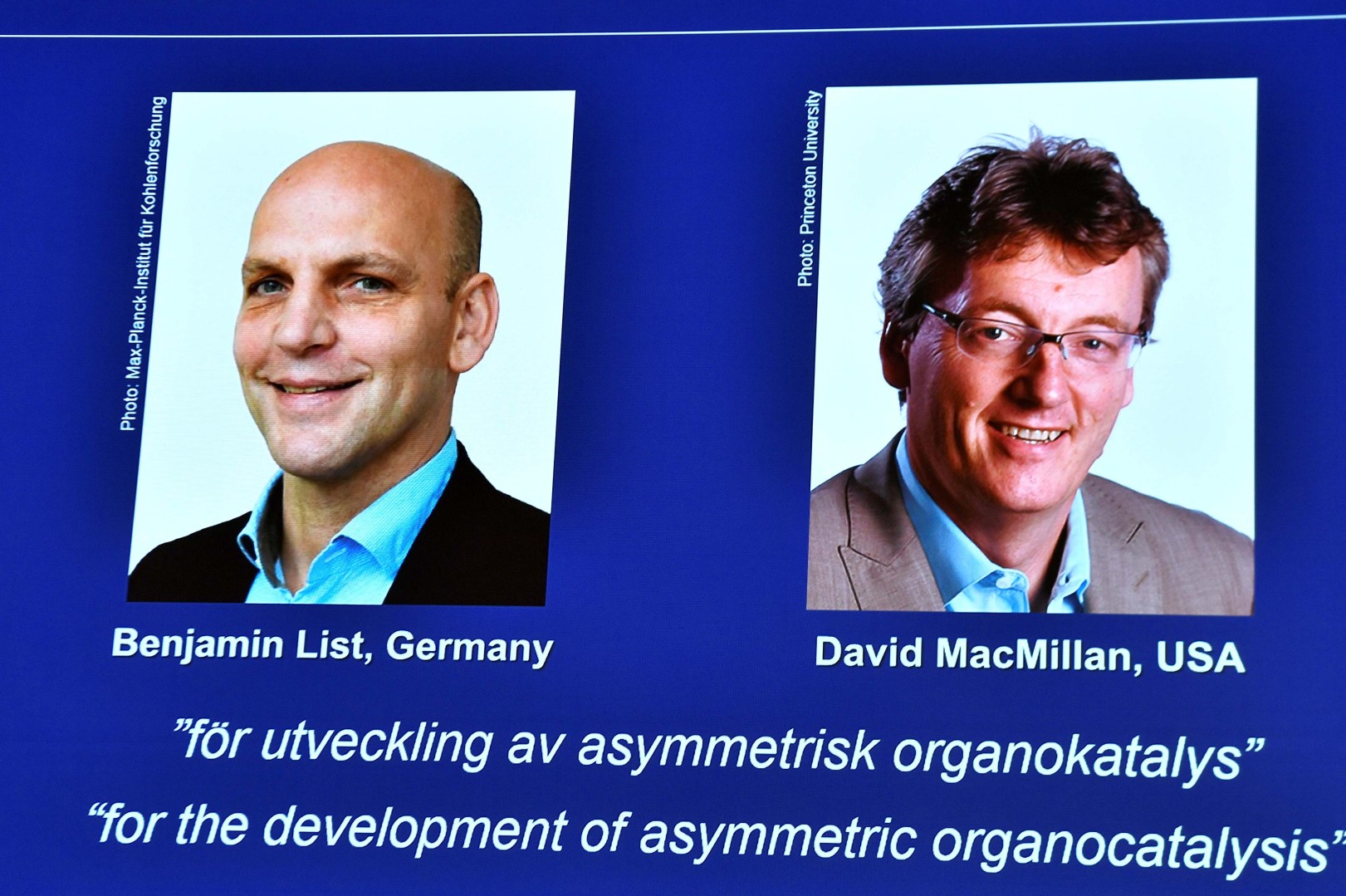
Goran Hansson, Secretary General, Royal Swedish Academy of Sciences: “The Royal Swedish Academy of Sciences has today decided to award the 2021 Nobel Prize in Chemistry jointly to Benjamin List and David Macmillan for the development of asymmetric organicatalysis.”
Peter Somfai, Nobel Committee member: “Compared to metal catalysts, organic catalysts is a more sustainable alternative. It has been estimated that catalysts is responsible for about 35% of the world’s GPD, which is a pretty impressive figure. So then if we have a more environmentally friendly alternative, it’s expected that that will make a difference.”
Johan Aqvist, Chairman of the Nobel Committee of Chemistry: “There are many catalysts that are based on metals like the one we have for cleaning exhaust gases in our cars for example. These are expensive metals, they are usually harmful for the environment so these types of organic catalyst are really small, simple organic molecules containing carbon, oxygen, nitrogen. Of course, organic molecules can be dangerous as well, but in principle, this allows for a greener chemistry.”
David W.C. MacMillan, Nobel Prize Winner: “I’m really just thinking about the way people would perform these reactions that allow you to make medicines, allow you make materials, allow you to you make lots of other things. At that point, we were just hopeful we could actually even come up with a concept that would work, but we were all so with an eye on, we hoped that it would have an impact beyond that.”
“At the time, we understood that aspect of it, we knew that would be more environmentally sustainable. So that was something we absolutely cared about from the very, very first moment. And so we recognize that not only would it make it faster, cheaper, it would also make it a little bit better, better for basically the environment, better for the world.”
Benjamin List, Nobel Prize for chemistry winner: “Our catalysts specifically help, for example, in the preparation of one antiviral compound. I think this is a good time to remind people how important antivirals are. I mean, everybody is now aware of that fact. We think vaccines are the cure and often they are. I think in this current pandemic, for example, it’s vaccines. But in many other diseases like, for example, Hepatitis C or HIV, it’s small molecule drugs that chemists design and synthesize. And one particular drug is made using organocatalysis, and actually, it’s currently used everywhere in the pharmaceutical industry.”
“I still think that it could have an impact, like imagine there is a small molecule drug that you take and you simply don’t end up in the hospital, I think that would really change this pandemic completely.”
Reporter: “And is that something that could happen with your…”
Benjamin List, Nobel Prize for chemistry winner: “Absolutely, absolutely. I mean, we are not working on drugs. We are making drugs, right? So it’s a slightly different angle. So, it’s the technology with which you can make drugs. It’s not the design of drugs, what we do.”





